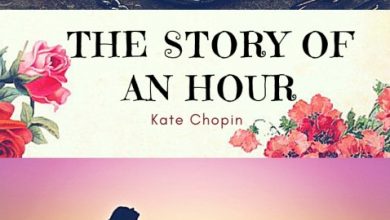Morning in the Burned House is a splendid poem by Margaret Atwood that dwells upon the quality of reminiscing an idyllic past. But the poem does not resonate with any sublime idealization of an idyllic, innocent life because the poem closely connects them with a sense of desolation and a harsh landscape of reality, the burned house. Thus, Morning in the Burned House evokes, on one hand, the themes of death, tragedy, and trauma but on the other hand, a poem that should be read against any expression of mourning.
Morning in the Burned House | Summary & Analysis
Written in simple and elegant language, Morning in the Burned House is a free-verse poem. The poem begins with an ironic statement that perhaps suggests an expression of a word-play within the word, “morning”, echoed in the title of the poem, which acts as a homonym to the word, “mourning”.
Morning in the Burned House Analysis, Lines 1-6
In the burned house I am eating breakfast.
You understand: there is no house, there is no breakfast,
yet here I am.
The spoon which was melted scrapes against
the bowl which was melted also.
No one else is around.
The poem follows the structure of a tercet, three lines in one stanza. The speaker begins the poem with lines that are evocative of her detachment from the harsh reality. The first stanza in the poem echoes a tone of peacefulness as the speaker says, “In the burned house I am eating breakfast”. But only to follow with the lines that evoke a sense of loss, “…there is no house, there is no breakfast”. The first line that describes a typical idyllic day is immediately juxtaposed with the second line as an act of snapping back the readers, echoed in the phrase, “You understand”, into the harsh landscape of the burned house. But the speaker further informs us, “yet here I am”, within the world of an innocent memory.
The next three lines within the next stanza, once again, bring forth the speaker toward the unpleasant present reality. In this stanza, the cruel reality surrounding the setting of the poem is evoked around the household materials, the “spoon” and “bowl”, “which was melted” in the sudden event of burning. The speaker furthermore heightens a sense of loss in the repetition of the word “melted” and even more, an association of this word with an adverb to put the phrase as, “melted also”. Moreover in this stanza, the speaker invokes an atmosphere of harsh reality in the phrase, “scrapes against” to suggest a harsh and unharmonious sound. The final line of this stanza, “No one else is around”, emphasizes the loneliness and solitude that has encompassed the burned house.
Morning in the Burned House Analysis, Lines 7-12
Where have they gone to, brother and sister,
mother and father? Off along the shore,
perhaps. Their clothes are still on the hangers,
their dishes piled beside the sink,
which is beside the woodstove
with its grate and sooty kettle,
Following the above lines that disclosed to the readers the absence of anyone around, the speaker wonders, “Where have they gone to, brother and sister/ mother and father?”. These lines immediately show us that the speaker of the poem has reverted back to the times of the past. As the speaker further ponders, she suggests the probability of all of her family being at the shore. But the poet shrewdly employs enjambment in the line, “…off along the shore” to straddle the word, “perhaps”, suggesting that the speaker of the poem is undoubtedly in a world of delusion, reminiscing about the memories of the past. Such an insight into the speaker’s delusional world is more elevated in the next few lines of the following stanza.
The unwashed “dishes piled beside the sink”, and the clothes that are “still on the hangers” are all lines that suggest a sudden departure upon the sudden destruction of the house in the process of burning. Such an incident of burning is evoked in the word, “sooty kettle” which suggests the shades of soot produced during combustion. Thus, the poem once again presents the harsh landscape of the burned house. Throughout the poem, the speaker oscillates between an idyllic past and the cruel present, evoking grief for the loss of innocence and thus, a desire to cling to the pleasant memories of the past, similar to the one wherein the speaker assumes her family to be somewhere “Off along the shore”.
Morning in the Burned House Analysis, Lines 13-18
every detail was clear,
tin cup and rippled mirror.
The day is bright and songless,
the lake is blue, the forest watchful.
In the east a bank of cloud
rises up silently like dark bread.
The grieving and sorrowful mood of the poem becomes more elevated in these lines. The stanza begins with an intriguing line, “every detail clear”. Such a line confides to the reader about the ferocious fire that burned the house and left nothing. The speaker informs us that the “day is bright” but “songless”. Once again, evoking a harsh noise or the lack of any sound at all to describe the pathos of the setting of the poem.
The bright day is followed by the lines, “the lake is blue, the forest watchful”. Herein, we recognize that the bright day only indicates an ominous shade more than an echoing of a typical bright day morning. Such an impression of foreboding is heightened in the lines, “In the east a bank of cloud/ rises up silently like dark bread”. Typically, the sun rises in the east. But in this poem, “a bank of cloud” rises up in the east, and even more, they rise up “like dark bread”. The shrewd use of conceit here as an extended rhetorical device to compare two things that have contrasting differences, the rise of cloud to that of the dark bread, the poet succeedingly brings forth an elevated sense of a tone of threatening and haunting into the poem.
Morning in the Burned House Analysis, Lines 19-21
I can see the swirls in the oilcloth,
I can see the flaws in the glass,
those flares where the sun hits them.
This tercet here amplifies the shallow and unoccupied house parallel to the all-consuming power of fire. The poet employs words associated with the fire to evoke the aftermath of the burned house. The speaker of the poem can distinctly perceive every detail, as she says, “I can see the swirls in the oilcloth” and “I can see the flaws in the glass”, suggesting the shallowness of everything that makes them transparent and discernible for the speaker. Moreover, the poet acutely brings together the words, “flaws” and “flares” as alliteration, to evoke the sudden burst of bright light that makes the “flaws” in the glass perceptible.
Morning in the Burned House Analysis, Lines 22-30
I can’t see my own arms and legs
or know if this is a trap or blessing,
finding myself back here, where everything
in this house has long been over,
kettle and mirror, spoon and bowl,
including my own body,
including the body I had then,
including the body I have now
as I sit at this morning table, alone and happy,
The lines in this stanza embody the intensity of the conflagration that destroyed the house of the speaker as she moves to juxtapose them with the sense of physical loss as well. Such a sense of physical loss becomes suggestive in these lines, “I can’t see my own arms and legs” and “including the body I had then/ including the body I have now” which confounds the reader about the possibility of the physical presence of the speaker. Are we reading the poem through the narration of a ghost? Fortunately or unfortunately, such a perplexing question is left open-ended by the poet.
The theme of a sense of physical loss is emphasized in the repetition of the phrase, “including the body”. Moreover, the repetition of the word, “including” evokes the all-pervasive power of the ferocious fire that leads to the burning of the house. In this stanza as well, the speaker moves back and forth between the times of an idyllic past and the harsh present reality. The former times are evoked in the lines, “in this house has long been over/ kettle and mirror, spoon and bowl” and in the lines, “as I sit at this morning table, alone and happy”. Herein, the readers can perceive something important with respect to the association of the past with an idyllic time. Specifically, the brilliant use of repetitive household materials like a spoon, bowl, mirror, and kettle, all that was mentioned earlier in the lines of the poem, connotes an ordinary, simple and modest lifestyle that suggests an idyllic past. Thus, losing all of them in the sudden incident of burning meant the destruction of a sense of stability for the speaker. Such a loss of sense of stability can be viewed parallel with the loss of detachment from the present reality for the speaker. Thus, the speaker of the poem indulges in a sort of delightful melancholy, wherein the poet attempts to find meaning within the life lived rather than in the death feared.
Such contradicting emotions are experienced by the speaker as she sways to and fro between the times of past and present and thus wonders, “..if this is a trap or blessing/ finding myself back here, where everything/ in this house has been long over”. Moreover, in the final lines of this stanza, the phrase, “alone and happy”, once again, evokes a sense of delightful grief.
Morning in the Burned House Analysis, Lines 31-36
bare child’s feet on the scorched floorboards
(I can almost see)
in my burning clothes, the thin green shorts
and grubby yellow T-shirt
holding my cindery, non-existent,
radiant flesh. Incandescent.
These lines of the poem exceptionally connote the grief for a loss of innocence, a loss of an idyllic past. The line, “bare child’s feet on the scorched floorboards”, undoubtedly associates the “bare child’s feet” with the innocent days of the past that have passed by. The poet uses parentheses in this stanza at the line, “I can almost see” as if to provide us with an additional explanation for the probability that the speaker might be a ghost. Furthermore, in the lines “holding my cindery, non-existent/ radiant flesh”, especially in the word, “non-existent”, the speaker connotes an illusory narrator. Moreover, the abundant images associated with fire and thus burning, in these lines evoke and confirm the possibility of the death of the speaker.
The poet skillfully uses words like “scorched”, “burning” (ironically the only time this word is used, considering its importance), “grubby”, “yellow”, “cindery”, “radiant” and finally, “incandescent”, all of them images symbolizing the significant incident of burning, to evoke the omnipotent power of fire. But the brilliance of the poem is manifested in the final lines, wherein, parallel to the all-purging and the destructive force of fire, the “non-existent”, however, the “radiant flesh” of the speaker rises powerfully and strongly, intensely echoed in the ultimate word, “Incandescent”. (a subtle evocation of Sylvia Plath’s famous lines in the poem Lady Lazarus, “Out of the ash/ I rise with my red hair”).
Morning in the Burned House — About the Author
Margaret Aleanor Atwood is a Canadian novelist, poet, story writer and so much more. She has received numerous awards including, Booker Prizes, Arthur. C. Clarke Award and Franz Kafka Prize. Some of her notable works are The Handmaid’s Tale, Cat’s Eye, The Blind Assassin, and The Testaments.




